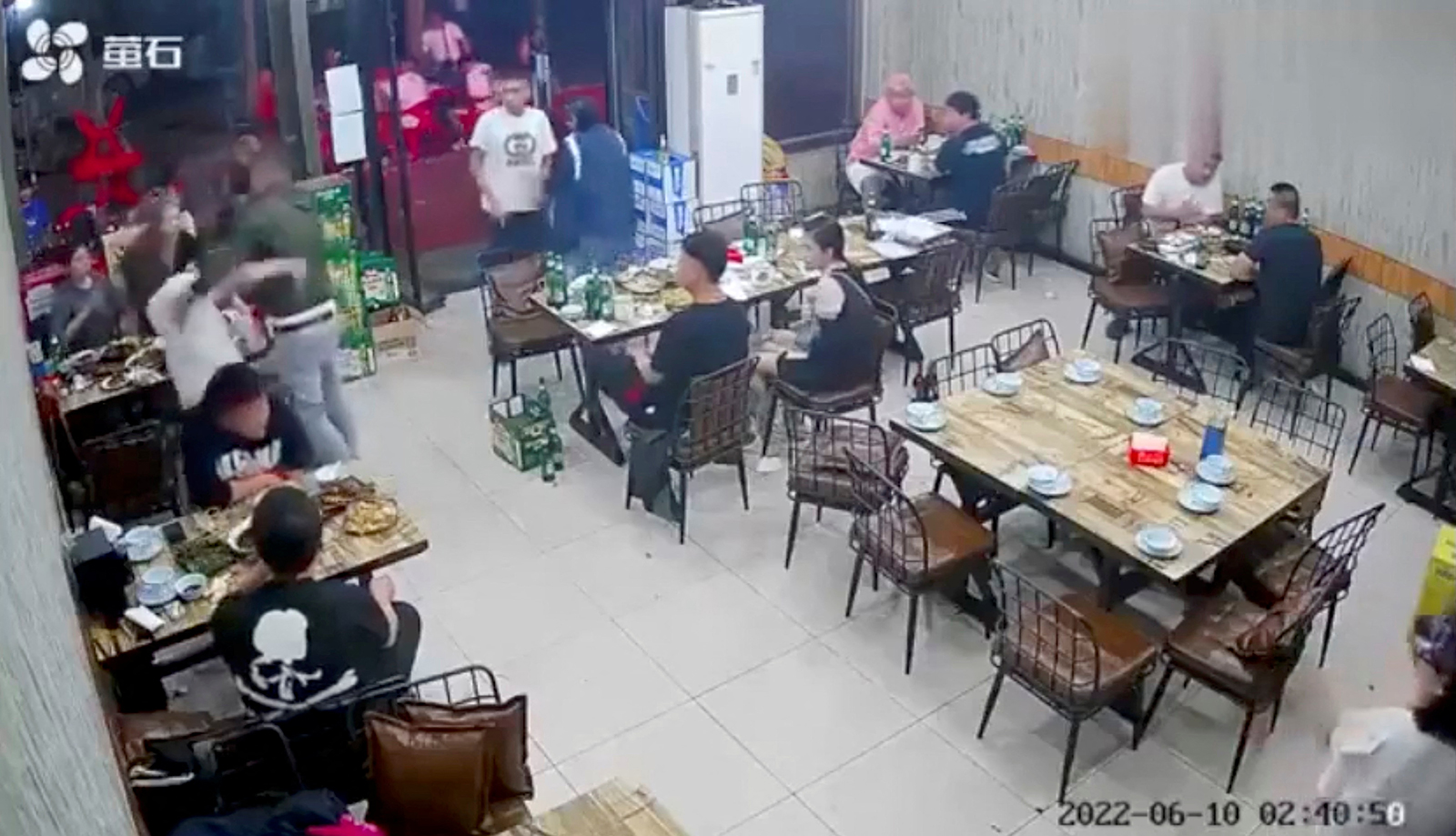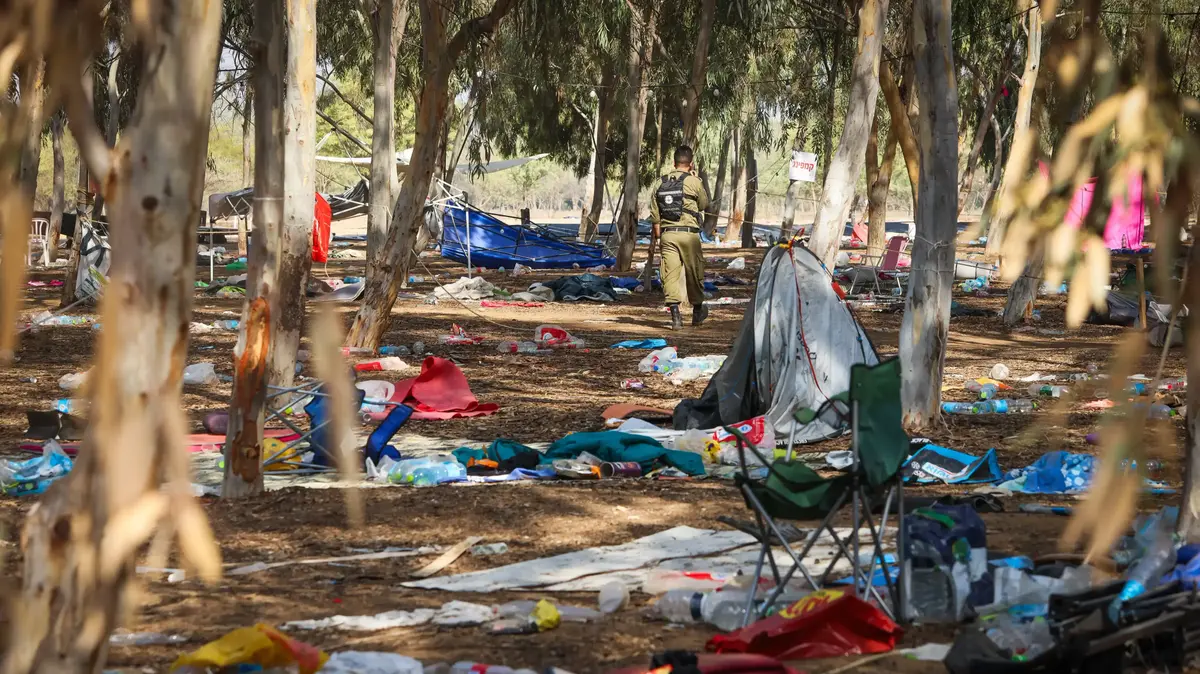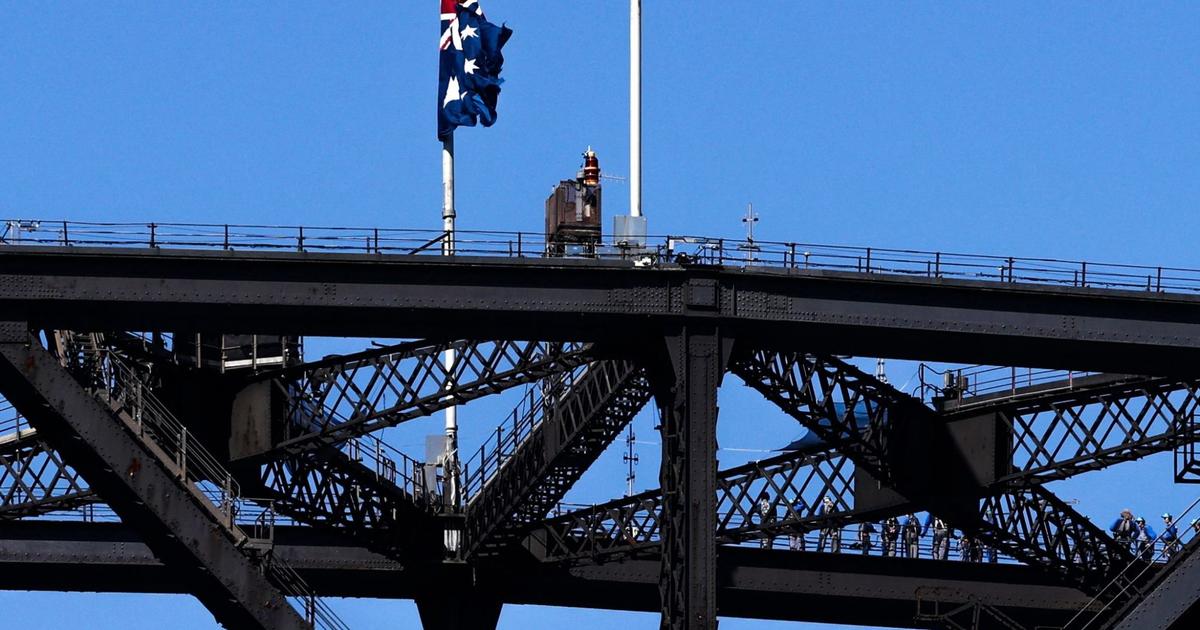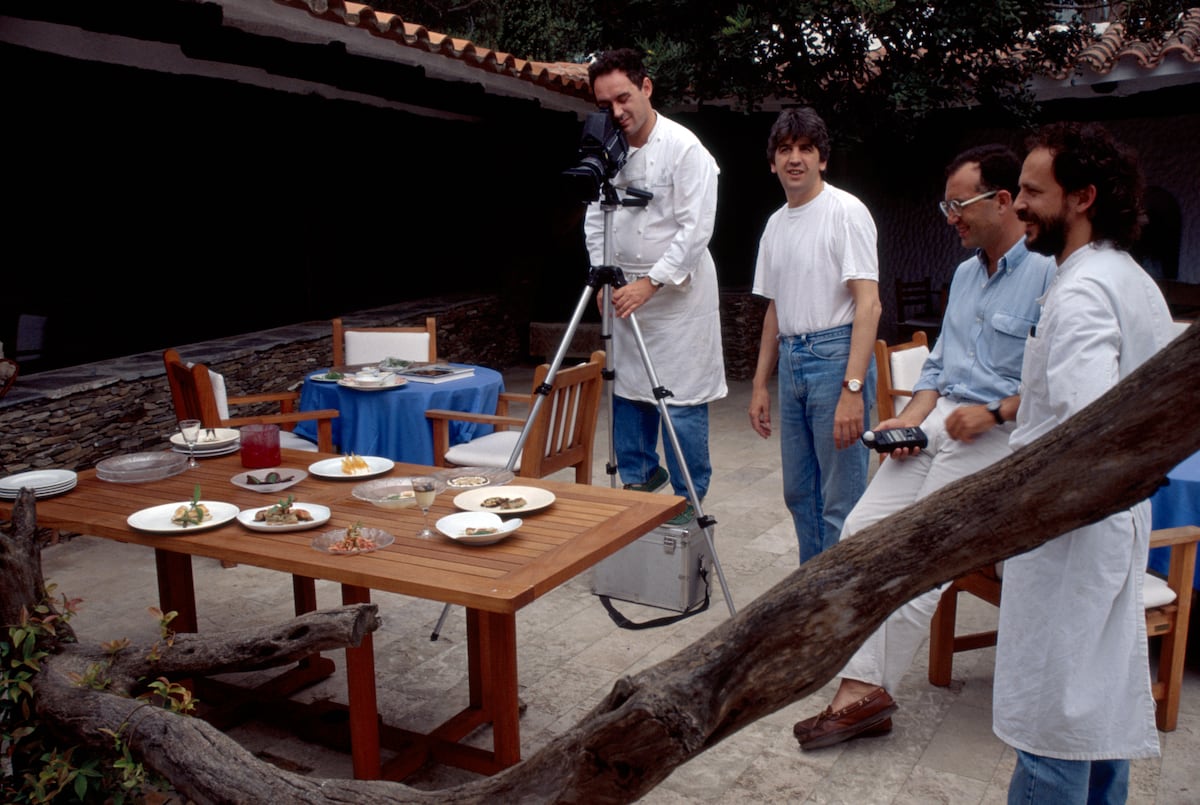Viral video of women being attacked sparks outrage in China 3:27
Hong Kong (CNN) --
It's been ten days since a vicious attack on four diners at a Chinese barbecue restaurant shocked and angered the country, but a void of information surrounding the victims has kept the Chinese internet asking: "What really happened to those women?"
The women were brutally assaulted by nine men in the northern city of Tangshan after one of them objected to being sexually harassed.
The attack — caught on surveillance camera — has sent shockwaves across China, sparking outrage from women who have long suffered gender-based harassment and violence.
ANALYSIS |
'This Could Happen To Any Of Us': Explicit Video Of Men Kicking Woman's Head Shakes China To The Core
But the resulting silence from victims and their families has unsettled many who fear the worst for women, underscoring the public's lack of trust in a system of government that routinely whitewashes unpleasant news, a propensity that has been encouraged by a series of strict restrictions under the country's zero covid policy.
Many expressed their fear for the women after seeing the harrowing surveillance footage.
The men dragged a woman outside by her hair, hit her with bottles and chairs, and repeatedly kicked her in the head.
A woman who tried to help her was pushed away from her, landing heavily on the back of her head on the stairs.
advertising
Hours after the attack, a photo showed one of the victims lying on a hospital bed covered in blood, her head bandaged.
The next day, Tangshan police reported that two women had been hospitalized with "non-life-threatening injuries" and were in "stable condition", but their condition has not been reported since.
Why does China offer economic or spiritual reward?
0:43
Over the past week, rumors that some of the victims were in much worse condition than authorities claimed have spread persistently online, despite repeated denials by police, hospital officials and the local branch of the China Women's Federation, a state-backed women's group.
Some claim that surveillance video captured only part of the attack and that the violence continued off-camera in a nearby alley, claims that CNN cannot independently verify.
Another video circulating on the Internet shows residents laying bouquets of flowers in the alley.
Speculation skyrocketed on Thursday, June 16, when more videos appeared on the Internet whose authenticity cannot be confirmed.
On Weibo, China's Twitter-like platform, the hashtag "Tangshan Beaten Girls Follow-up" had been viewed more than 200 million times as of Friday, generating more than 220,000 comments, with many demanding to know what had happened to them. to women.
In a statement that same Friday, Weibo said it had closed 320 accounts for "spreading rumours" about the Tangshan attack.
A widely circulated article on the WeChat messaging app that alluded to the rumors was also censored.
Without official information, doubts grow about the health status of women
The persistent speculation was fueled by a black hole of information surrounding the victims.
None of them — nor their friends or relatives — have spoken out since the attack, and no official details about their injuries have been released.
The state media has mainly focused on the swift action of the police in arresting the suspects and the two-week "storm" campaign announced by the Tangshan authorities to crack down on organized crime.
Some media outlets known for their hard-hitting reporting, such as China News Weekly, quoted hospital officials as denying that any of the women had died, but that failed to convince the public.
"You authorities deny rumors every day. Where is the evidence?" one Weibo user asked.
"Why are rumors flying everywhere? Because we can't find a single sentence of truth anywhere," said another.
The local police station told CNN the case was still under investigation and declined to share any additional information.
The hospital where the women were treated did not respond to CNN's request for comment.
The local branch of the China Women's Federation hung up the phone.
Even journalists from state media have been hampered from reporting on the aftermath by local authorities, who tightened Covid travel restrictions in the aftermath of the attack.
Anyone arriving in the city by train is required to provide a detailed address of where they are staying and to sign a note agreeing not to leave;
travelers planning to stay in hotels must register 48 hours in advance;
those who can leave the train station are sent to their accommodation on government-organized buses, the state-run Jinan Times reported.
A journalist from the government-run Guizhou Radio Television Station said in a video on Weibo that when he arrived at the Tangshan railway station on June 11, a day after the attack, he was not allowed to leave the station because "it had not informed the local residential community in advance".
All this despite having tested negative for the coronavirus that same day, being in possession of a "green health code" in his covid application and having traveled from a city where there had been no recent cases of the virus. .
"Is this really a normal epidemic prevention measure, or are (the authorities) trying to use Covid as an excuse to prevent journalists from entering Tangshan?" he asked in the video, since deleted.
It would not be the first time that local authorities in China have used covid restrictions for political control.
In the city of Zhengzhou in Henan province, authorities have been accused of manipulating the digital health code system to foil a planned protest.
"Tangshan and Henan are really the scariest comparison: for eight days, you don't know anything about the Tangshan girls, but (the Henan authorities) know all your details in a second: where you are, what train ticket you booked, and what want to do," wrote Li Chengpeng, a prominent writer and social critic, on social media on Saturday.
"What you know is what (the authorities) let you know, what you don't know will never be known," he added.
Like many other publications criticizing the lack of transparency in the government's handling of the incident, Li's article has since been censored.
CNN's Shawn Deng contributed reporting.
China






/cloudfront-eu-central-1.images.arcpublishing.com/prisa/QYARZLICO47BA5G6YE4UUN26IQ.jpg)








